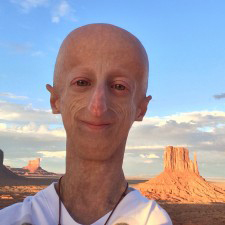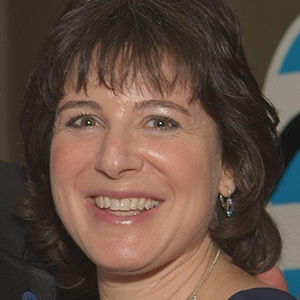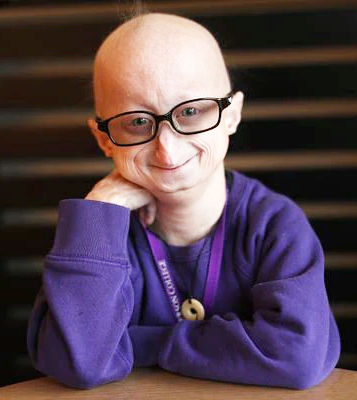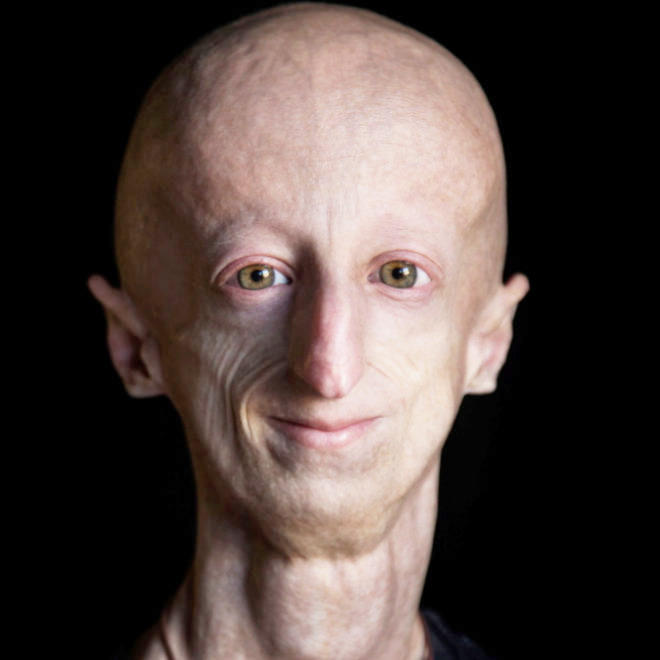Progeria
Quick Facts
PRF BY THE NUMBERS
As of June 30, 2024
- Identified children/young adults living with Progeria and Progeroid Laminopathies: 210* in 52 countries
- *154 of these children/young adults have Hutchinson-Gilford Progeria Syndrome (HGPS, or Progeria), and the other 56 have progeroid laminopathies.
- PRF-funded Progeria Clinical Drug Trials: 4
- Grants funded: 85, totaling $9.3 million
- Cell lines in the PRF Cell & Tissue Bank: 211
- Children in PRF’s Medical & Research Database: 222
- International Scientific Meetings on Progeria: 14
- Number of languages into which PRF’s program and medical care materials are translated: 38
Mission
To Discover Treatments and the Cure for Hutchinson-Gilford Progeria and its Aging-related Disorders, Including Heart Disease.
What is Progeria?
Progeria, also known as Hutchinson-Gilford Progeria Syndrome (HGPS), is a rare, fatal genetic condition of “rapid-aging” in children. Without lonafarnib (Zokinvy) treatment, all children with Progeria die of the same heart disease that affects millions of normally aging adults (arteriosclerosis), but at an average age of just 14.5 years. Remarkably, their intellect is unaffected, and despite significant physical changes in their young bodies, these extraordinary children are intelligent, courageous, and full of life.
For more information on the cause of Progeria, click here to watch a brief overview video narrated by Dr. Leslie Gordon, taken from Life According to Sam (2013).
About PRF
The Progeria Research Foundation (PRF) was established in 1999 by Drs. Leslie Gordon and Scott Berns, the parents of a child with Progeria, along with many dedicated friends and family who saw the need for a medical research resource for the doctors, patients, and families of those with Progeria. Since that time, PRF has been the driving force behind the Progeria gene discovery and the first-ever Progeria drug treatment. PRF has developed programs and services to aid those affected by Progeria and the scientists who conduct Progeria research. Today, PRF is the only non-profit organization solely dedicated to finding treatments and the cure for Progeria. PRF is hailed as a prime example of a successful translational research organization, moving from creation, to gene discovery, to first-ever drug treatment in just 13 years.
Total Revenue
1999 through June 30, 2024
1999 through June 30, 2024
More than 80% of PRF’s annual expenses are consistently dedicated to its programs and services – one factor in our achieving a coveted 4-star rating from Charity Navigator ten years in a row.
The support we have received made the Progeria gene discovery, the Progeria clinical trials and all of our other extraordinary progress possible. With the help of current and new supporters, we will win this race against time and find treatments and the cure for these special children. Moreover, Progeria treatment discoveries may also help millions with heart disease and the entire aging population.
PRF’S Programs & Services
First-Ever Progeria Clinical Drug Trials and Treatment
PRF-Sponsored Clinical Drug Trials bring children from around the world for promising treatments that may help to improve disease and extend the lives of children with Progeria.
In 2020, history was made with the United States Food and Drug Administration (FDA) approval of lonafarnib (trade name Zokinvy™), a farnesyltransferase inhibitor, or FTI, as the first-ever treatment for Progeria and Progeroid Laminopathies. Lonafarnib has been shown to improve many aspects of the disease including the vital vascular system, and increase average survival time by 4.3 years. For more information on this exciting news, click here.
In 2016, PRF initiated a two-drug trial, adding everolimus, with the hope that the two drugs together will be even more effective than lonafarnib alone. These are remarkable steps forward in the pursuit of a cure.
Let's Find the Cure!
International Progeria Registry
Maintains centralized information on children and families living with Progeria. This assures rapid distribution of any new information that may benefit the children.
Cell & Tissue Bank
PRF’s Bank provides researchers with genetic and biological material from Progeria patients and their families so research on Progeria and other aging-related diseases can be performed to bring us closer to the cure. PRF has collected an impressive 214 cell lines from affected children and their family members worldwide including 10 Induced Pluripotent Stem Cell (iPSC) lines.
Medical & Research Database
The Database is a centralized collection of medical information from Progeria patients worldwide. The data is rigorously analyzed to help us understand more about Progeria and devise treatment recommendations. In 2010, this analysis contributed to PRF’s comprehensive healthcare Handbook on Progeria aimed at optimizing quality of life. The Handbook is available in English, Spanish and Portuguese, Russian & Italian.
Diagnostic Testing
This program was developed in the wake of the 2003 gene discovery so that children, their families and medical caretakers can get a definitive, scientific diagnosis. This can translate into earlier diagnosis, fewer misdiagnoses and early medical intervention to ensure a better quality of life for the children.
Scientific Workshops on Progeria
- PRF has organized 14 scientific conferences that have brought together scientists and clinicians from all over the world to share their expertise and cutting edge scientific data. These workshops foster collaboration in the fight against this devastating disease.
Research Grants
Through peer review by our volunteer Medical Research Committee, PRF has funded projects throughout the world that have led to important discoveries about Progeria, heart disease and aging. PRF’s research program has been updated as of September 2018 to reflect current research needs within the fields of Progeria, aging and heart disease.
Publications & Research
Both clinical and basic scientists have utilized the PRF grants, cells and tissues, and database; their discoveries are published in top-notch scientific journals. The average annual number of scientific publications on Progeria since 2002 is more than 20 times that of the previous 50 years!
PRF Translation Program
In touch with the world. With a prominent global presence, PRF eliminates barriers to communication for patients and their families, from around the world. This initiative has succeeded in translating PRF program and medical care materials into 38 languages.

Public Awareness
Our website provides access to the latest information on Progeria research and support for families. Through Facebook, Twitter, Instagram, YouTube, LinkedIn, and other mediums, PRF’s direct social media reach is over 1 million. PRF’s story has appeared on CNN, ABC News, Primetime, Dateline, The Katie Couric Show, NPR, The Associated Press, and The Today Show, in Time and People magazines, The New York Times, The Wall Street Journal and many other widely-read media outlets. In addition, the award-winning 2013 HBO film Life According to Sam has raised awareness in a unique and inspiring way. PRF also manages Find the Children, a global awareness campaign to find children with Progeria worldwide, so they can get the unique help they need.
Who’s Who at PRF?

Audrey Gordon, Esq.
President and Executive Director
Working closely with the Board of Directors, officers, staff, and volunteers, Ms. Gordon is responsible for day-to-day management and for ensuring The Progeria Research Foundation’s financial growth and program development.

Leslie Gordon, MD, PhD
Medical Director
Dr. Gordon co-founded PRF with friends and family after her son, Sam, was diagnosed with Progeria. Dr. Gordon oversees PRF’s research-related programs, and is a co-chair for the Progeria clinical drug trials. She is an Associate Professor of Pediatrics Research at the Warren Alpert Medical School of Brown University and Hasbro Children’s Hospital in Providence, RI, and a Staff Scientist at Boston Children’s Hospital and Harvard Medical School.

Scott D. Berns, MD, MPH, FAAP
Chair, Board of Directors
Dr. Berns, Sam’s father, is a co-founder of The Progeria Research Foundation and serves as Chairman of the Board. He is a Board Certified Pediatrician and Clinical Professor of Pediatrics at the Alpert Medical School of Brown University. He is also President and CEO of the National Institute for Children’s Health Quality, an independent, nonprofit organization working to improve children’s health.

Merlin Waldron
PRF Ambassador
Merlin is an accomplished cellist and violinist, travel enthusiast, published poet and author, and a graduate from Emerson College in Massachusetts. Merlin serves as a spokesperson for The Progeria Research Foundation’s Annual Road Race and the International Scientific Workshop, as well as a variety of media appearances.

Sammy Basso
PRF Ambassador
Born in 1995, Sammy Basso was diagnosed with Progeria at age two, and has been the spokesperson of the Sammy Basso Italian Association for Progeria since he was ten years old. In 2007, Sammy was among the first to join PRF’s clinical trials, testing the now-FDA-approved treatment lonafarnib as the first-ever treatment for Progeria. In 2014, he was featured in the National Geographic docu-film “Il Viaggio di Sammy” (Sammy’s travels), which chronicled his dream trip: traveling on Route 66 in the U.S. from Chicago to Los Angeles with his parents and friend.
In 2018, Sammy graduated from Padua University with a degree in Natural Sciences and delivered a thesis on a genetic editing approach in HGPS mice. Later that year, he was awarded Knight of the Order of Merit of the Italian Republic, for his in-depth research in disabilities and his partnership with the Italian government. In 2020, Sammy became a member of the Veneto’s regional and national task force for COVID-19 information disclosure (scientific and influencer features). In 2021, Sammy graduated with a second degree in Molecular Biology with a thesis on the intersection of Lamin A and Interleukin-6, an approach for treating Progeria by targeting the toxic protein, known as progerin.
Hear from Sammy in a recent panel at the 2021 STAT Breakthrough Science Summit here.

